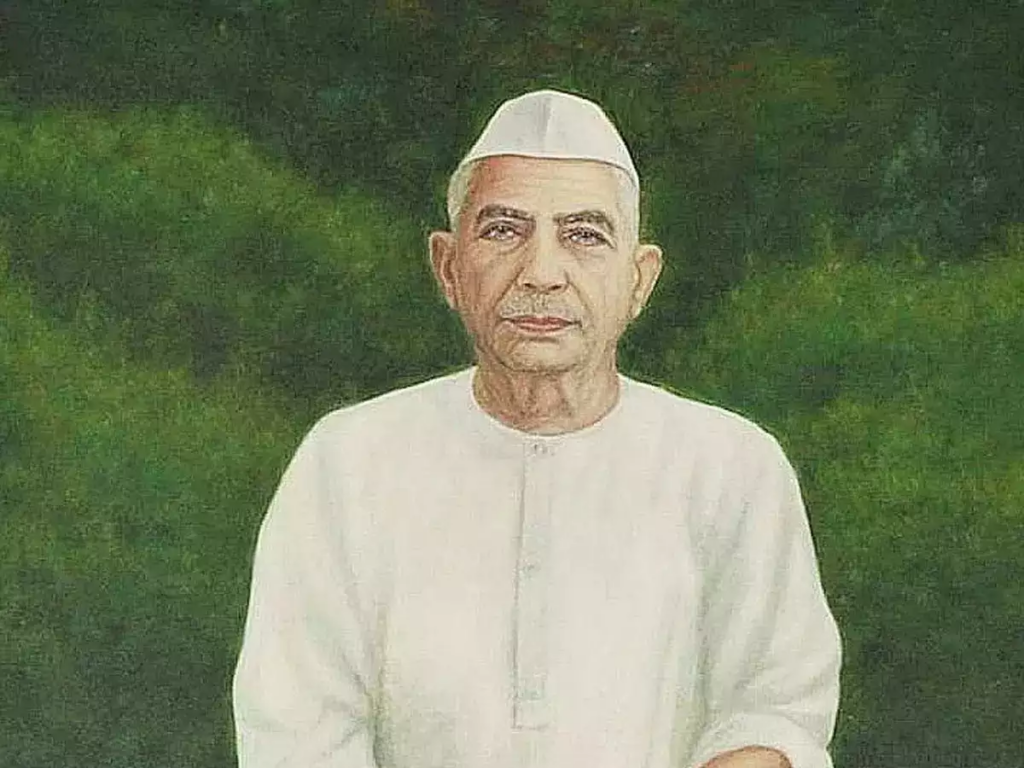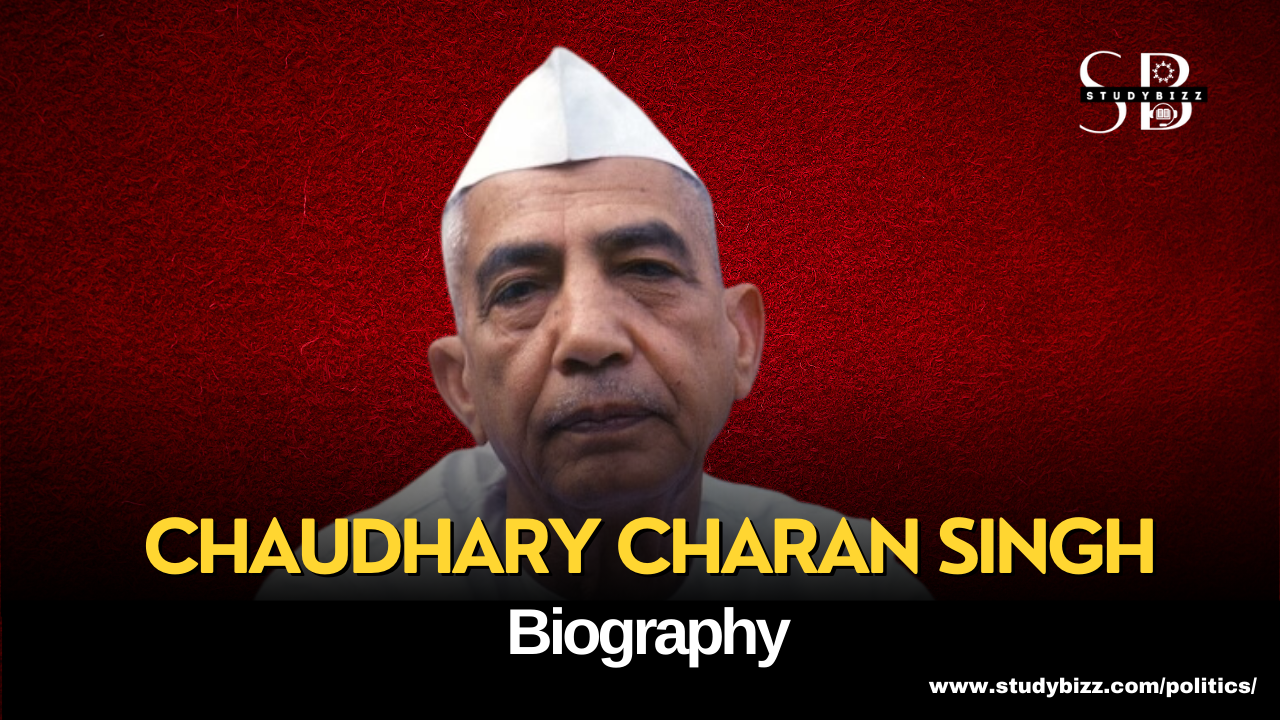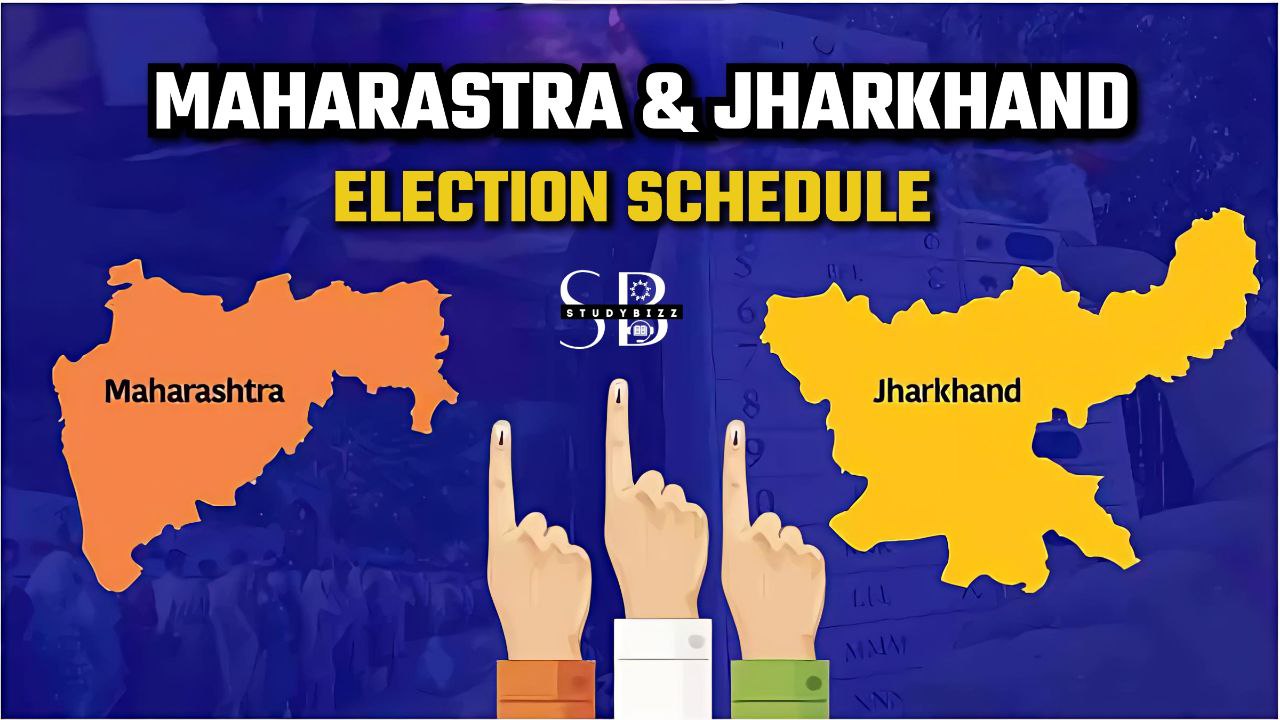Chaudhary Charan Singh Biography: Chaudhary Charan Singh was born on December 23 and National Farmers’ Day is celebrated in his honour every year. He was born in a middle-class peasant family in Noorpur, Uttar Pradesh. From July 28, 1979, to January 14, 1980, he was the fifth Prime Minister of India. Historians and the general public know him as the “Champion of the Peasants of India”.

Chaudhary Charan Singh: Key Facts
| Born | December 23, 1902 |
| Birthplace | Noorpur, India |
| Died | May 29, 1987 |
| Place of death | New Delhi, India |
| Father | Mir Singh |
| Mother | Netra Kaur |
| Spouse | Gayatri Devi |
| Political affiliations | Indian National Congress, Janata Party |
| Title/Office | Prime Minister (1979-1980), India |
| alma mater | Agra University |

Chaudhary Charan Singh Education and Early Life
His father was Mir Singh, a self-cultivating tenant farmer, and his mother was Netra Kaur. He was the eldest of five brothers. His family moved from one village to another within Meerut district in search of land suitable for a sedentary agricultural life. In 1922 he was found in the village of Bhadaula.
He did his studies in the village of Jani Khurd. He completed his matriculation from the government secondary school in 1919. In 1923, he completed his Bachelor of Science at Agra College and his Master’s degree in History in 1925. He also trained in law. He practised civil law in Ghaziabad. In 1929, he joined the Indian National Congress and chose a full-time political career.
Throughout his life, he worked for the betterment of farmers and their families. The values associated with it are hard work, independence and uncompromising honesty. He went to jail several times for Indian independence.

Chaudhary Charan Singh’s political journey and his major works
- In 1937, he was first elected to the UP Legislative Assembly from Chhaprauli. He represented the constituency in 1946, 1952, 1962 and 1967.
- In 1946, he became parliamentary secretary in Pandit Govind Ballabh Pant’s government. He worked in various departments including Treasury, Medical and Public Health, Justice, Information, etc.
- He was appointed a state Cabinet Minister in June 1951 and was in charge of the Departments of Justice and Information.
- In 1952, he took over as Minister of Finance and Agriculture in the Cabinet of Dr. Sampurnanand.
- In 1959 he resigned and at that time he was in charge of the Department of Revenue and Transport.
- In 1960, he was also Minister of Home Affairs and Agriculture in the Ministry of Shri CB Gupta.
- From 1962 to 1963, he served as Minister of Agriculture and Forests in Smt. Ministry of Sucheta Kriplani.
- In 1965, he left the Department of Agriculture and took charge of the Department of Local Self-Government in 1966.
- After the Congress split, he again became Chief Minister of UP for the second time in February 1970 with the support of the Congress Party. On October 2, 1970, presidential power was imposed in the state.
- He served Uttar Pradesh and earned a reputation as a tough taskmaster who did not tolerate inefficiency, nepotism and corruption in administration.
- In UP, he was the chief architect of land reforms and played a leading role in the formulation and finalization of the Department Redemption Bill in 1939. This came as a great relief to the debtors.
- He also played a key role in the creation of the Land Tenure Act in 1960 to reduce the land-holding ceiling to make it uniform across the state.
- He was a firm believer in social justice and gained the trust he enjoyed among millions of peasants.
books written by Chaudhary Charan Singh
He led a simple life and liked to read and write. He wrote several books and pamphlets including “Abolition of Zamindari”, “Cooperative Agriculture with X-Ray”, “Indian Poverty and Its Solution”, “Peasant Property or Land for Workers” and division of property below a certain minimum. ‘.
Chaudhary Charan Singh’s legacy
- He was prominently involved in the formulation and finalization of the Department Redemption Bill of 1939. It brought great relief to rural debtors.
- He was instrumental in creating the Land Tenure Act of 1960. It lowers the land-holding ceiling to make it uniform across the state.
- His birthday is celebrated as Kisan Diwas or National Farmer’s Day in India on December 23.




Leave a Reply